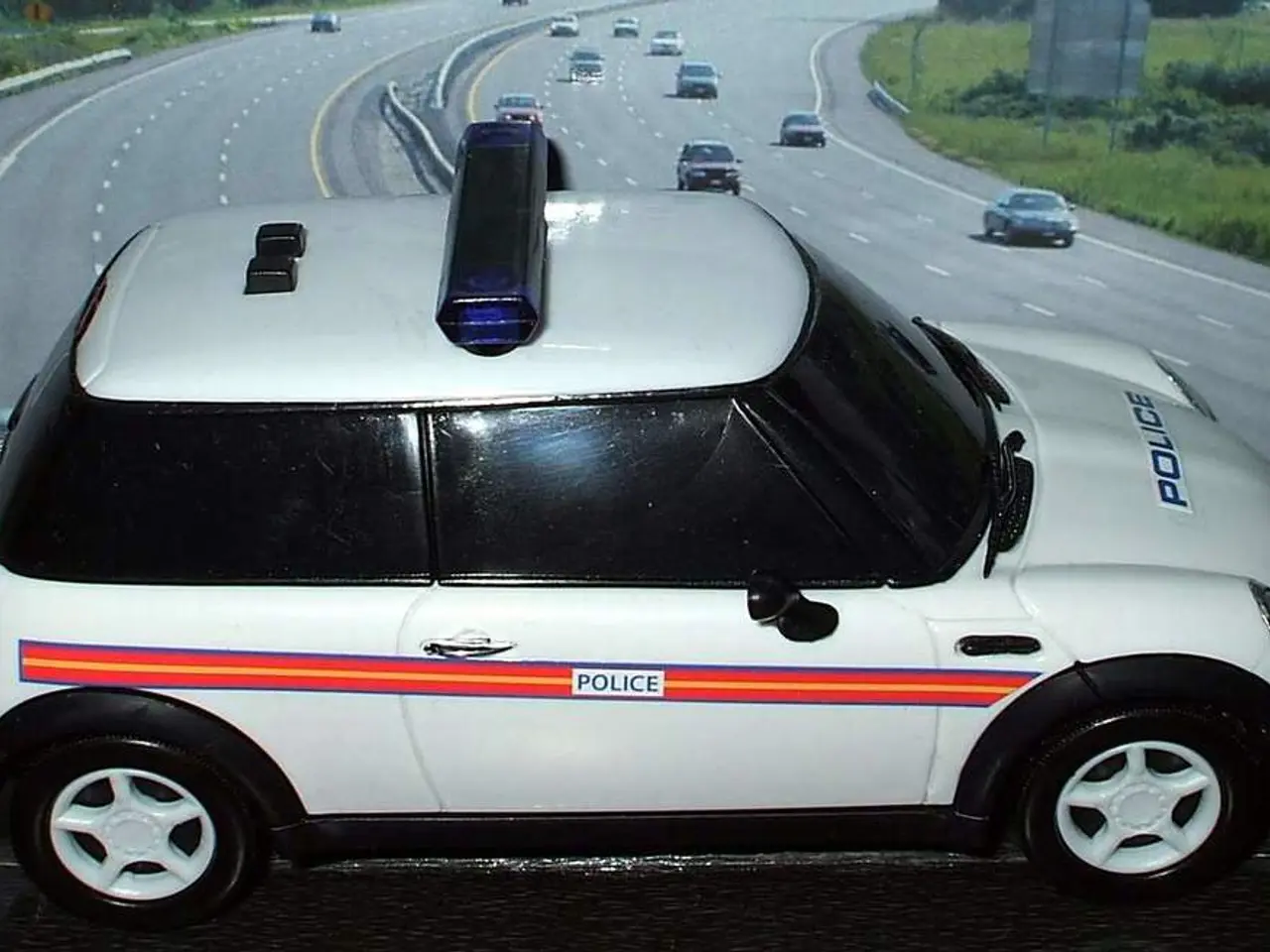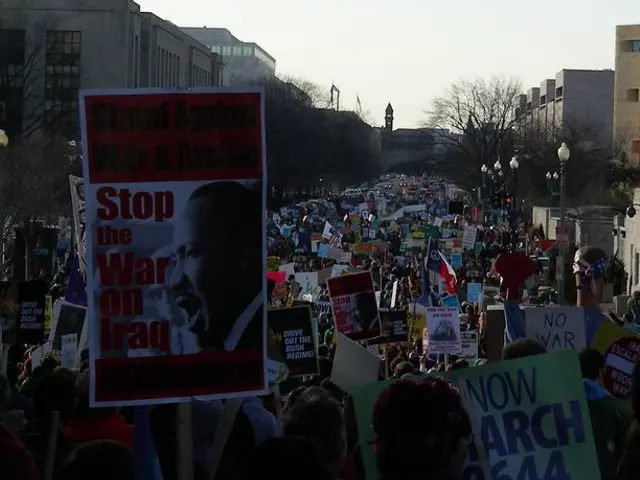Authorities under Trump's control enacting control over Washington's police force mirrors historical instances of racial prejudice linked to city crime narratives
In a move that has sparked controversy and concern, President Donald Trump has ordered the deployment of National Guard troops onto the streets of Washington D.C. The decision comes amidst a political rhetoric that echoes decades-old narratives, with Trump denouncing American cities, particularly those with majority non-white populations or led by progressive politicians, as lawless or crime-ridden and in need of outside intervention.
The move is reminiscent of historical precedents where federal troops surged into urban neighborhoods due to political rhetoric, often with disastrous consequences. For instance, during the New York City Draft Riots of 1863, federal military intervention was prompted by violent unrest among working-class whites and led to significant racial violence against Black residents.
Similarly, during the Civil Rights Era, federal troops were deployed to enforce desegregation orders, such as in Little Rock, Arkansas (1957). While necessary for civil rights enforcement, these deployments also triggered intense local resistance and incidents of intimidation and abuse of Black residents.
Critics argue that the current deployment of federal agents and National Guard troops lacks the necessary training in community policing, discretion, and de-escalation techniques crucial for urban neighborhood dynamics. There are fears that such deployments lead to civil liberties violations, intimidation, and unchecked abuses, particularly in majority Black and Brown cities.
Local advocates warn that these tactics can violate residents' freedoms irrespective of political views, with the potential for repeated patterns of racialized policing and systemic injustices. Historically, federal troop surges into urban neighborhoods driven by political rhetoric have undermined civil rights protections due to militarized approaches ill-suited for community trust and oversight, often exacerbating racial tensions rather than resolving them.
Democratic Maryland Gov. Wes Moore and Oakland Mayor Barbara Lee have criticized Trump's characterization of their cities as fearmongering. District of Columbia Mayor Muriel Bowser called Trump's takeover of the local police force "unsettling" but not without precedent.
April Goggans, a longtime Washington resident and grassroots organizer, worries about what a surge in law enforcement could mean for residents' freedoms. Monica Hopkins, executive director of the American Civil Liberties Union's D.C. chapter, shares similar concerns about potential abuse, intimidation, and civil rights violations due to federal control of the D.C. National Guard and police.
Trump's actions in Washington and comments about other major American cities have sent shock waves across the country, with other cities preparing to respond to potential federal action. Some residents of Washington, D.C. view the prospect of federal troops surging into the district's neighborhoods as an alarming violation of local agency.
However, the administration believes the highly visible presence of law enforcement will deter violent crime. It is unclear how the administration defines providing a safe environment for law enforcement to conduct arrests. The deployment of National Guard troops is in response to an urgent public safety crisis, according to President Trump.
The administration already faced a major flashpoint between local control and federal power earlier in the summer, in Los Angeles. Trump's rhetoric, which denounces American cities as lawless or crime-ridden, has been a staple of conservative politics for decades. Trump promises a "historic action" to rescue Washington, D.C. from crime, bloodshed, bedlam, and squalor.
Civil rights advocates see Trump's rhetoric as part of a broader political strategy, painting a picture that crime is out of control and blaming Democratic lawmakers' policies for it. Trump's promises to "beautify" the nation's capital and "take over" its law enforcement have raised concerns about the potential for increased militarization and civil rights violations in the district.
As the situation unfolds, it is crucial to remember the lessons of history and the importance of community policing, discretion, and de-escalation techniques in urban neighborhoods. The deployment of federal troops should be a last resort, not a first response, to public safety concerns.
Read also:
- Court petitions to reverse established decision on same-sex marriage legalization
- Commemoration of 200 Days of American Resurgence Unveiled
- Minister Bärbel Bas expresses doubts about her tenure as a minister following a recent interview during the summer.
- Trump's enforcement actions in Washington D.C.: Insights from the political arena








